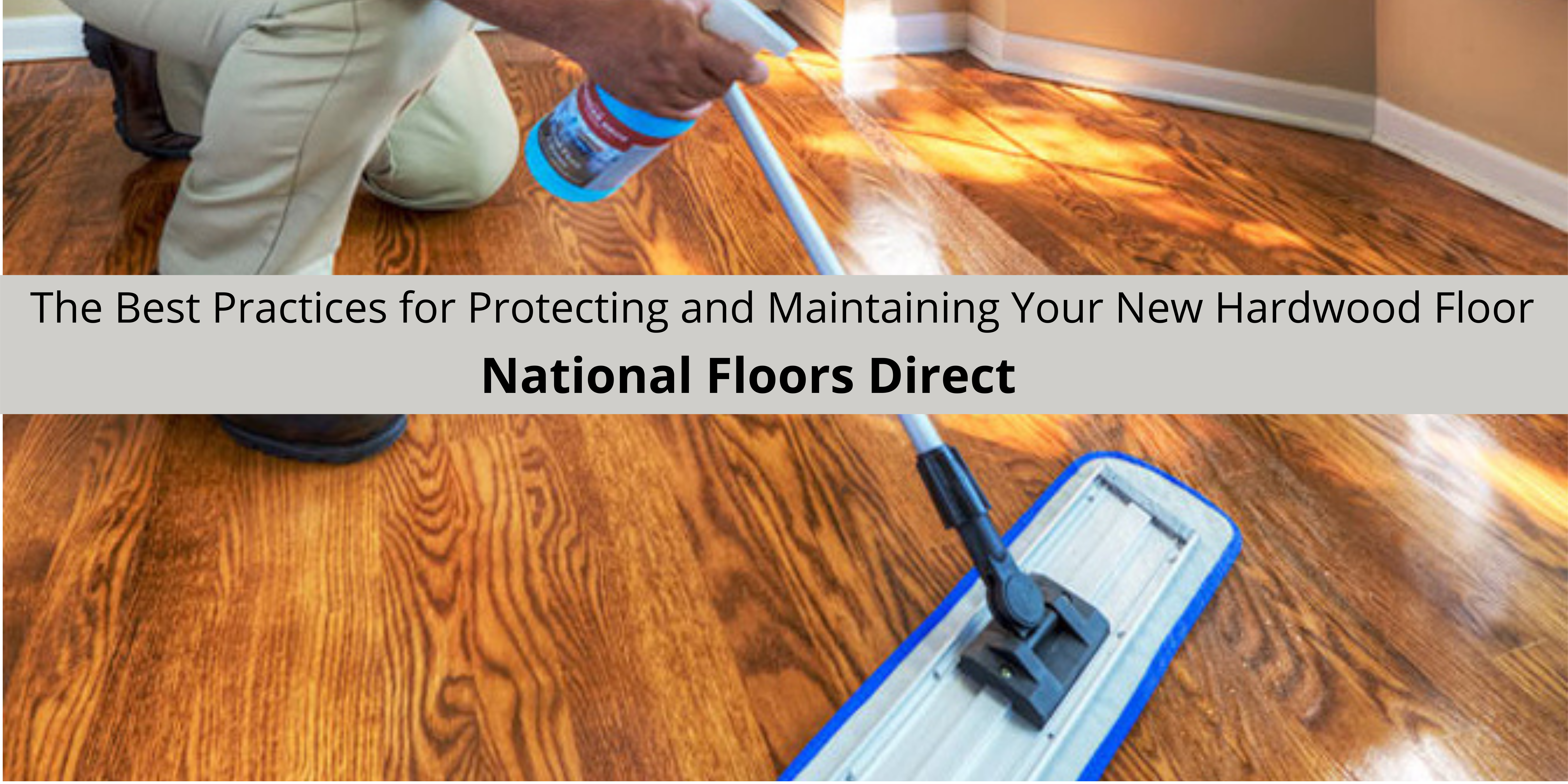
National Floors Direct Offers The Best Practices for Protecting and Maintaining Your New Hardwood Floor
National Floors Direct explains how to care for your new investment, so it stays elegant for years to come.
Hardwood floors are beautiful and durable and last an average of 20 years before they need to be refinished or replaced, but they can last much longer with proper care. National Floors Direct explains how to care for your new investment, so it stays elegant for years to come.
Cleaning Hardwood Floors
According to National Floors Direct, one of the best things you can do for hardwood floors is to sweep each day. You can use a broom or a dust mop for daily cleaning. Once a week, vacuum the floor. This helps remove dirt and dust that is trapped in the crevices of the floor.
How hardwood floors are cleaned will depend on the finish. If your floor has a polyurethane finish, National Floors Direct states that you can clean it with vinegar and water or purchase a wood floor cleaner. If you have waxed hardwood floors, it’s best to mop with a waterless cleaner designed for waxed hardwood flooring. You can clean the floor with a vinegar and water solution or water with mild dish soap. Squeeze the mop out very well and dry the floor with a cloth immediately after mopping. Never let water stand on a waxed floor.
Waxed floors will eventually become dull. In most cases, buffing the floor will bring back the shine. Eventually, you’ll need to remove the old wax with mineral spirits and reapply the wax. Steam mops shouldn’t be used on hardwood floors of any type.
Protecting Hardwood Floors
Moisture is the enemy of hardwood floors. Polyurethane finished floors will hold up to moisture better than waxed flooring, according to National Floors Direct. Over time, however, water can damage any hardwood flooring. It’s important to clean spills as soon as they happen. Don’t allow water or mud to be tracked in during bad weather.
National Floors Direct states that humidity and temperature are also important. Wood flooring expands and contracts based on temperature and humidity. High heat and humidity cause the floors to expand, while cold temperatures cause it to contract. Floors are installed with room to expand, but if they expand too much, it can cause cupping and warping, according to National Floors Direct. Quick temperature changes are also bad for your floors. The temperature in your home should remain between 60-80 degrees. If you live in an area with high humidity, you may need a dehumidifier to keep your floors from getting too much moisture.
Furniture pads are one of the simplest ways to protect your hardwood floors. National Floors Direct explains that scratches are a common problem with hardwood flooring. This usually occurs when furniture is moved across the floor. Adding furniture pads to the feet of all furniture will protect the floor from these scratches. In addition, keep objects picked up off the floor. Items like toys, keys, and kitchen utensils can easily scratch your wood as well. Refinishing can bring dull floors back to life, making them an excellent investment.
